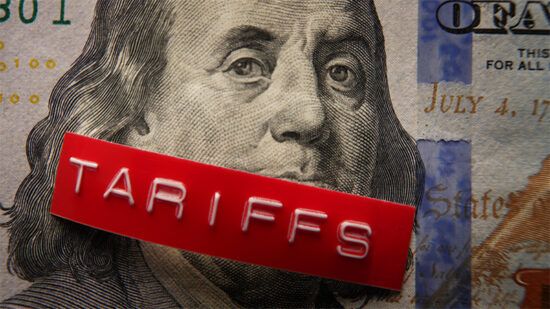Right now, I should be writing my first article of 2025, but I can hardly concentrate. My mouth is dry, my hands are a bit shaky, and it’s a struggle. Now, for some, that might just be a winter flu, but in my case, it’s because I’ve given up processed sugar for January.
I’ve done this for the last few years, and it always shocks me just how much withdrawal I seem to suffer in the early days – not only because I tend, like most, to overindulge in the always-open tin of Quality Street over the festive period. My body seeks the simple rush of blood sugar that chocolate, biscuits or Christmas cake would bring.
This annual practice dates back nearly 10 years for me, since Elly Irving (now at Lazard Asset Management, then at Schroders) and I (then exclusively at Greenbank) began exploring the risks of sugar, its prevalence in modern diets, links to non-communicable disease and effects on investment portfolios. It’s also just over 20 years since the publication of Kelly D. Brownell and Katherine Battle Horgen’s Food Fight – The Inside Story of the Food Industry, America’s Obesity Crisis and What We Can Do About It. So, fighting through my blood sugar dip, now seems an ideal time to revisit the topic and see what progress has been made.
In terms of obesity, the trend is alarming. According to the Centers for Disease Control and Prevention, 2023 data shows that in more than 23 states, more than one in three people are obese. Overall, that’s one in five of all US adults. Before 2013, not a single US state had a prevalence figure that high. The increase is slower in the UK – rising from 24.4% of adults in 2014 to 26.2% in 2023.
The causes are much debated. Published in 2023, Ultra-Processed People: Why Do We All Eat Stuff That Isn’t Food … And Why Can’t We Stop? by Chris van Tulleken has garnered a lot of clicks and attention. It claims quite starkly – “it’s not you, it’s the food”. That is, it’s not our lack of collective willpower, but the diets we make and the ‘choice environments’ in which we exercise our free will. It argues that sugar or fat aren’t the enemy, but that ultra-processed foods (UPFs) cause obesity. And, being so addictive that we struggle to resist, we also can’t combat the effects of ultra-processed foods on our diets with exercise.
But is that the case? Author of May Contain Lies, academic and helpful bringer of sense in the ESG debate, Alex Edmans, conducted his own review and concluded: “It is indeed the case that certain UPFs are harmful. But the claim that all UPFs are harmful, that they cause problems that have a myriad of other drivers, and that nothing can save you, is not supported by the evidence.”
How is the industry in the UK responding? According to the Food Foundations State of the Nation’s Food Industry report from November 2024 (which highlights the performance of major UK retailers, out-of-home businesses, and food manufacturers and looks at what steps they are taking to help us shift towards more healthy and sustainable diets), progress is mixed. The report focuses on 11 metrics and benchmarks 36 companies against a range of criteria to assess who is leading the way and what more needs to be done to help fix our unsustainable, unhealthy and unfair food system. It finds that “just seven of the 36 major UK food businesses benchmarked have moved to disclose data or set new targets for increasing sales of healthy and sustainable food since last year. Restaurant chains and fast-food outlets are the least transparent sector by some way, having made no progress since last year”. Further, just 25% of UK food businesses have a healthy food sales target and produce data on the healthiness of their sales.
Given the mixed progress, what role are investors playing in this trend? That’s been a key question that the likes of the Food Foundation in the UK have been trying to address for many years. The high prevalence of obesity is a classic externality; companies producing unhealthy food do not pay for related healthcare costs, necessitating policies to address such externalities.
Greenbank and other investors have worked with the Food Foundation’s Plating up Progress and ShareAction’s Healthy Markets initiatives in the UK in recent years. These collaborations highlight challenges in the industry best addressed by government policy to avoid a gap between proactive leaders and laggards, ensuring transformational change in our food environment. Greenbank was instrumental in setting up the Investor Coalition on Food Policy, which now comprises over 30 investors with over £6trn in assets under management or advice. While the debate has not crystallised around sugar in the way that we anticipated in 2015, the tenor of the rhetoric seems eerily familiar, whether the new target of ultra-processed foods deserves its new target status or not.
With a new government in place, there is hope for meaningful improvements in the UK market, at least around disclosure. Certainly, there is pressure from the Upper House, with The House of Lords Food, Diet and Obesity Committee demanding that the government should “develop a comprehensive, integrated long-term new strategy to fix our food system, underpinned by a new legislative framework”. The scale of investor involvement also gives a sense of momentum towards correcting for this market externality.
And as for me, the benefits of fasting seem to give many wider benefits, even if reducing the sugar itself might not be as vital as I thought.








